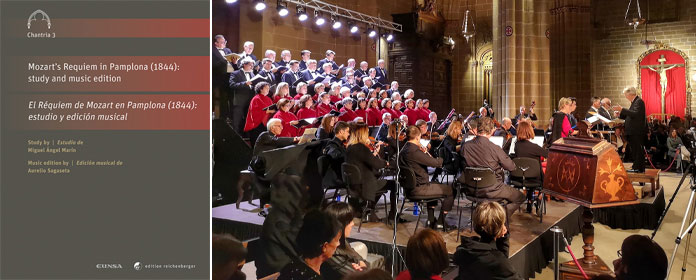The game, a source of values for children
Apolinar Varela, researcher of a project of the University of Navarra on Education of character in Latin America, recommends that children spend time in pedagogically oriented play but also in free play.

PHOTO: Manuel Castells
Apolinar Varela has a PhD in Education by the University of A Coruña with an ethnographic thesis on popular games in a rural community in Galicia. He also collaborates with the association Galega do Xogo Popular e Tradicional.
She is currently part of the project 'Investigar y promote la Education del carácter en las escuelas de secundaria en Latinoamérica', which is jointly developed by School of Education and Psychology and the Institute for Culture and Society University of Navarra, with funding from the Templeton World Charity Foundation.
In the framework of his research work on the development of virtues, in this interview he offers some clues about the game as source of values for children. Soon he will give in the School of Education and Psychology a seminar related to these issues, under the degree scroll 'The game in the social and educational'.
The project of research on Education of character in Latin America focuses on seven virtues. How do they relate to children's play?
First, many games require a skill -handling the diabolo or the spinning top, competing...- and therefore self-discipline is needed to reach a good level of execution. Justice and honesty have to do with establishing and respecting the rules in the recreational space: physical limits, the normative framework that appeals to fair play... Likewise, humility is important to accept defeat and that another player is better than you, and compassion, on the other hand, is related to empathy towards the other when he loses, or when we choose him for our team even if he is not good, to balance the game. On the other side we would have the gratitude of the one who is chosen, who gives recognition to the partner who has chosen him. Courage is necessary to overcome the difficulties that arise during the game and also when there is a "wild environment", such as surfing, which requires courage to face the sea.
What types of play help to acquire and practice values?
Play is fundamental for the cognitive and social development of children. Virtues are related to the latter. Depending on the type of play subject , some virtues are enhanced or others: if we talk about those with a more physical component, we point to perseverance, self-discipline...; in other more cooperative games we develop values such as solidarity or compassion.
Nowadays there are many proposals for games with a marked pedagogical character, as opposed to the spontaneity of the games of yesteryear. Why has free play taken a back seat?
In recent times there has been a process of "officialization of play", as some people say. Free play, the kind that took place in the streets, has practically disappeared; now it is only played in the institutional triangle: home, high school and extracurricular activities (sports clubs, toy libraries...). Sometimes parents are too concerned about finding an age-oriented game, to develop a subject of skill... You have to know how to control it. Children need their moments of free play, with their parents or alone, to develop their imagination. There is nothing more educational than that, to imagine new situations. The game educational, with pedagogical orientation, has some moments and the free one, others. They are not at odds, they must be combined.
And are both games equally valid when we talk about the Education in values?
Reinforcement from the teacher, the pedagogue, at final, from the adult is always a good thing. In fact, one of the children's demands is that parents play more with them. In free play there is more risk of anti-values such as violence, discrimination... In the more educational we try to alleviate these behaviors and enhance the formative part at a psychological level, content, etc.
In any case, in free play the child learns that he must be capable of self-management: if he misbehaves with his peers, cheats or cries when he loses, he ends up identifying that others will reject him. If I am more competitive, the group leaves me aside because it is not pleasant to be with someone who is constantly angry. Therefore, the game modulates the subject of behaviors that are manifested. And without the game we can hardly relate to others, acquire cultural and social values...
When we are younger we find it more difficult, but when the game starts to be more social there is a change, also at a moral level.
You mentioned playing with parents, what does it bring to children?
The intergenerational exchange is fundamental, not only with parents, but also with other adults. The older person transmits values, knowledge, rules of play....
Do technological toys help in the Education in values?
Video games and technological games in general are gaining a lot of ground in today's childhood. They have positive aspects, such as helping to develop certain cognitive skills. However, although I am not against them, perhaps I would not emphasize them so much because they lose something important, the physical interaction with others. I am more in favor of the traditional game, where the cultural and communication element is very present. Hopscotch or skipping rope are known all over the world and are easy to understand for all ages and cultures. In addition, a added value is the construction of the toy or game element itself.





